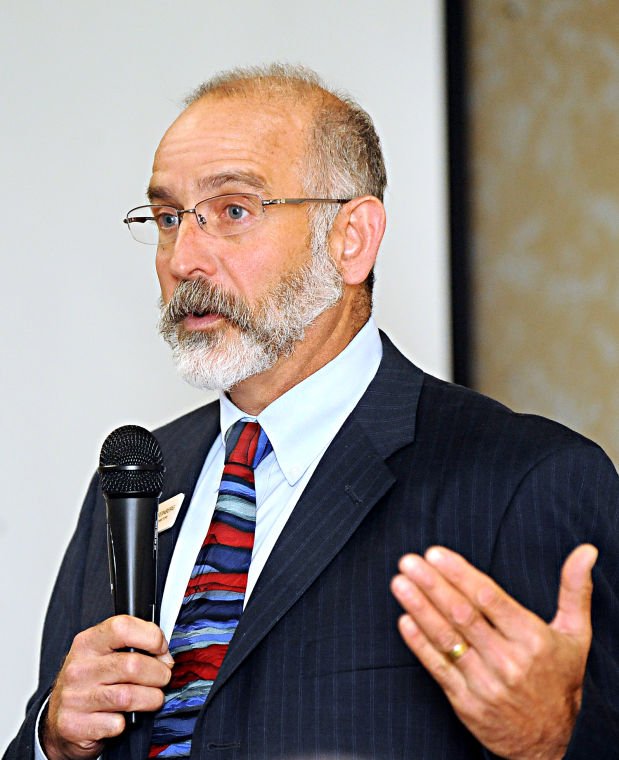
South County’s first legislative summit, hosted by the Gilroy Chamber of Commerce on April 25, was a who’s-who of local elected officials from congressional representatives to both mayors of Gilroy and Morgan Hill.
The event was a chance for state representatives to focus on wider issues like immigration reform and drought relief efforts, while city and county representatives addressed local successes and funding challenges.
“Being able to assemble so many politicians in one room was a huge success, not only for the chamber, but also for South County,” Gilroy Chamber CEO Mark Turner said. “They have such busy schedules and the fact they could make time was really a good thing. I think it showed their commitment to our region as well.”
In retrospect, Turner said the most important conversation was that of addressing the statewide drought—one that is hitting South County particularly hard.
“California is one of the largest producing agricultural regions in the world, and we need support to get a hand up,” he added. “As Congresswoman Zoe Lofgren said, we certainly can’t legislate ending a drought, but the preparation for these types of situations needs to be done.”
Agriculture was also a significant topic of discussion for the event, and Congressman Sam Farr noted that Santa Clara County does, on average, $250 million in agricultural sales per year.
“People want fresh, organic stuff, and there are many opportunities for small farming,” Farr said. “This is a growth industry, and we are better positioned than anybody in locality, jurisdiction and geography.”
Growth of communities, the job market and local government’s coffers is a discussion happened at every level, he added.
For Gilroy Mayor Don Gage, the event was a chance to hint at the potential sales tax or bond measure expected to appear on the November ballot. According to Gage, the measure would pay for new police officers and firefighters as development flourishes across the Garlic Capital.
“People are coming here. We want people to live here, stay here and raise their families here,” Gage said, adding that Gilroy is the poorest city in the county. “We don’t want our kids to move away to get a job. We have all the things we need to do that; we just need a little bit of help from everyone.”
On the other hand, Morgan Hill Mayor Steve Tate took the opportunity to praise what he called a thriving community.
“This is a very positive time for Morgan Hill, and I’m proud to be the leader,” Tate said, noting that the city has recovered from the Great Recession and has established a stable tax base.
He pointed to a few forthcoming projects, from installation of a downtown parking garage to the construction of a new council chambers in June.
One project, highlighted by President Mike Wasserman of the Santa Clara County Board of Supervisors, will benefit award-winning wineries across the region.
The Board of Supervisors recently adopted the Santa Clara Valley Wine Trail Route and approved a direction signage program to help motorists easily find more than 20-plus wineries and vineyards throughout South County.
“It’s going to increase agritourism and business in the region, and people are going to know when driving through South County where the wineries are,” Wasserman said, adding that he expects the signs to be installed by early June.
After the event, called a great success by its organizers, Turner announced plans to hold the second annual legislative summit in Gilroy next April.
“We’re hoping to time this again so we can get the full volume of those who were there,” he said.












